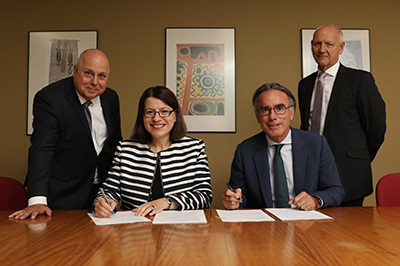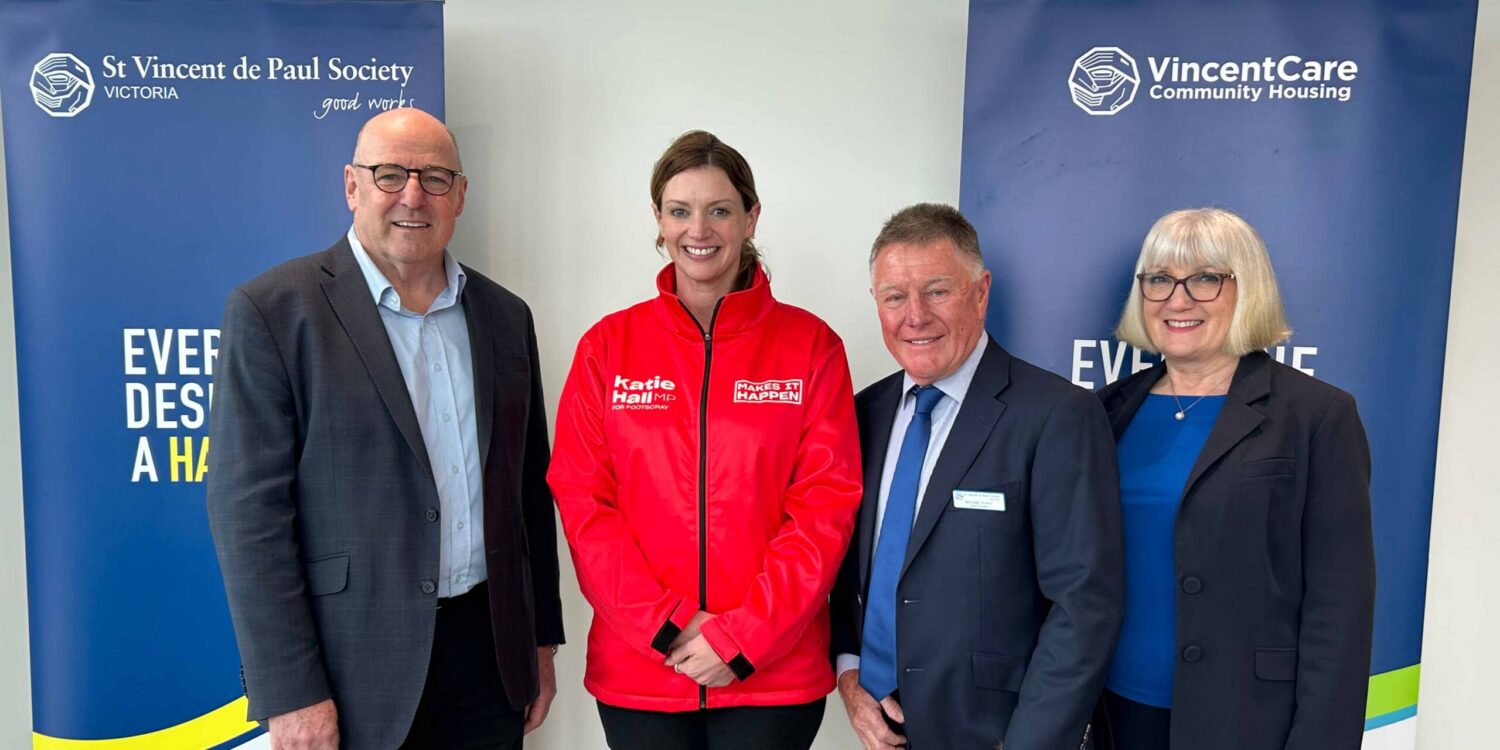
New Care-Leavers Program Kicks Off
Young people leaving care will receive two years access to housing and more as part of the new $14.2 million program, COMPASS.

The program aims to achieve a positive and effective transition from out-of-home care – leading to improved health, wellbeing and justice outcomes. In addition to housing the program will also provide a support worker to navigate the system, access to education, training and employment, and other services based on their needs.
VincentCare joined Minister for Families and Children Jenny Mikakos, Treasurer Tim Pallas and Anglicare Victoria to launch the COMPASS program, following a commitment from large philanthropic funds and private individuals to invest $14.2 million in the program.
“The COMPASS Social Impact Bond provides another example of how partnerships between government, investors and not-for-profit organisations can be used to improve outcomes for our most vulnerable Victorians,” Pallas said.
The program will support more than 200 care leavers aged between sixteen-and-a-half to eighteen-and-a-half over the next five years, from foster, kinship and residential care in Melbourne’s west, inner north and Bendigo.
“Kick-starting the COMPASS program means more young Victorians leaving care can be supported to live on their own, long-term, and they’ll be less likely to need crisis services down the track.
“For young people who have been in foster, kinship or residential care, it can be incredibly hard to transition to independent living without the extra support that COMPASS will provide,” Mikakos said.
The COMPASS program will complement existing services and programs for young people – not replace them – and provide the opportunity to trial a new and innovative approach to improving outcomes.
John Blewonski said providing stable housing and ongoing support services for care leavers is a critical part of breaking the cycle of disadvantage.
“Providing a safe, secure home removes the uncertainty many young people face when they leave care and puts them in the best possible position to thrive and develop the skills they need for the future,’’ he said.
“Evidence shows that having appropriate housing and individualised support, enables people to look after their health, find a job or get involved in education and training. It empowers them to set goals for their future and achievement and reduces the risk of ending up in the criminal justice, health and homelessness systems.”



